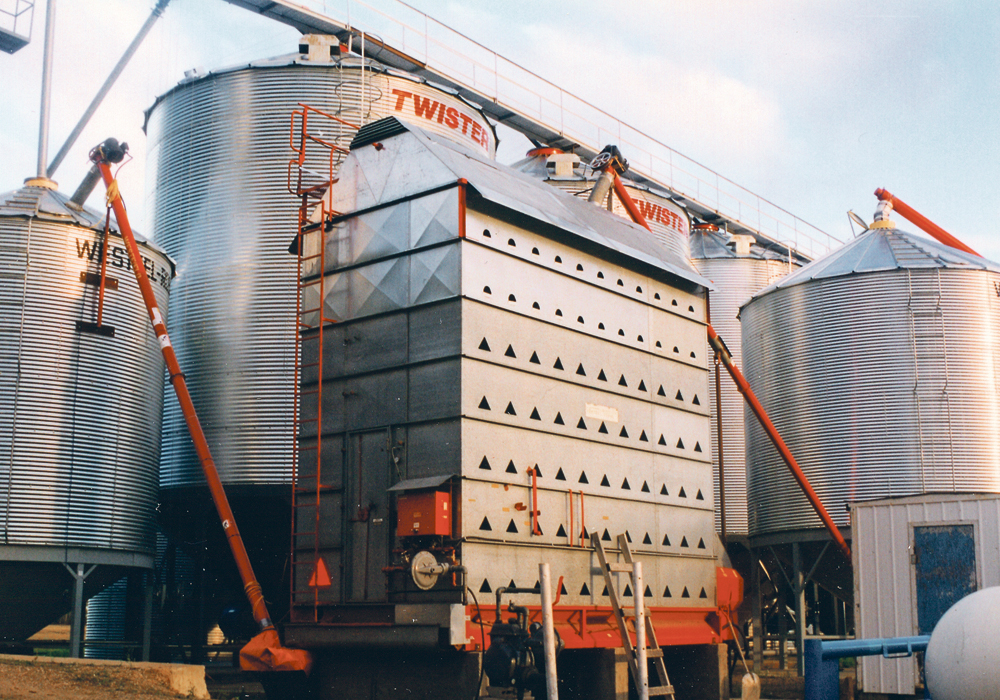Ralph Goodale questions ‘pollution pricing’ effect on fuel prices, but Saskatchewan producer calls it a scheme to buy votes
Farmers across the Prairies could be drying a record amount of grain this year and some of them will be paying extra for that unwelcome expense.
Glenn Helgason estimates he will be doling out at least $3,700 in carbon tax for drying down tough grain on his farm near Foam Lake, Sask.
“I’m having a tough enough fall as it is with harvest and then, because the federal government wants to save the world, they’re throwing an 18.6 percent increase at me,” he said.
“It’s going to Ottawa for Ottawa to send cheques out to the general public to buy their votes with my money.”
Read Also

Manitoba extends Crown land rent freeze
Manitoba government links the continued rental rate freeze on grazing and forage leases to economic and environmental challenges facing the industry
Saskatchewan Liberal member of Parliament Ralph Goodale said most retail fuel prices have either come down or stayed flat in the wake of the carbon tax.
“Forecasts of economic doom have not materialized,” he said in an email.
Natural gas prices are half of what they were a decade ago. SaskEnergy’s price of 22 cents per cubic metre is only up three cents from last year.
Goodale said every penny raised from “pollution pricing” stays in the province, some of which goes towards the Climate Action Incentive Fund.
Saskatchewan farmers can access the $21 million fund to switch to lower-emitting energy sources on their operations, he said.
But Helgason said money is being transferred from his pocket to the province’s wage earners.
He is being charged $0.0811 per cubic metre of natural gas for delivery service, $0.09 for gas consumption and $0.0391 for the carbon tax.
“I’m reducing carbon from the atmosphere and yet I’m getting charged a carbon tax to dry my grain,” he said.
The federal Liberal government imposed its $20 per tonne carbon tax policy on Saskatchewan starting April 1. Saskatchewan is fighting it in court.
Manitoba has its own policy that exempts farm diesel and gasoline in addition to fuels used for heating or cooling barns and greenhouses or to run grain dryers.
Alberta scrapped its provincial policy and is fighting the federal policy in court, so there is no carbon tax in place in that province at the moment.
The federal tax is expected to rise to $50 per tonne by 2022. By that time farmers like Helgason will be paying more for the carbon tax on their monthly SaskEnergy bill than for the natural gas itself if prices stayed at today’s levels.
“You’re down and out and the government is right there to kick you a little bit more,” he said.
Ian Boxall, vice-president of the Agricultural Producers Association of Saskatchewan, estimated the province’s farmers will be paying an extra 40 cents per acre to dry their grain this year.
It doesn’t sound like a lot but there will be many acres of grain going through dryers this fall.
“Our grain dryer is humming right now and so is all of our neighbours’ here in the northeast,” said the farmer from Tisdale, Sask.
“There will be lots of grain dried this year, probably record (amounts) if it continues the way it is.”
Boxall said the carbon tax is just another expense farmers can’t pass along to the end consumer.
“It makes the added cost of grain drying more difficult to chew,” he said.
Boxall wants whatever political party that wins the federal election to exempt all farm activities from the carbon tax, including grain drying.
“There is no alternative. There’s no other option besides propane or natural gas to run our grain dryers,” he said.
















